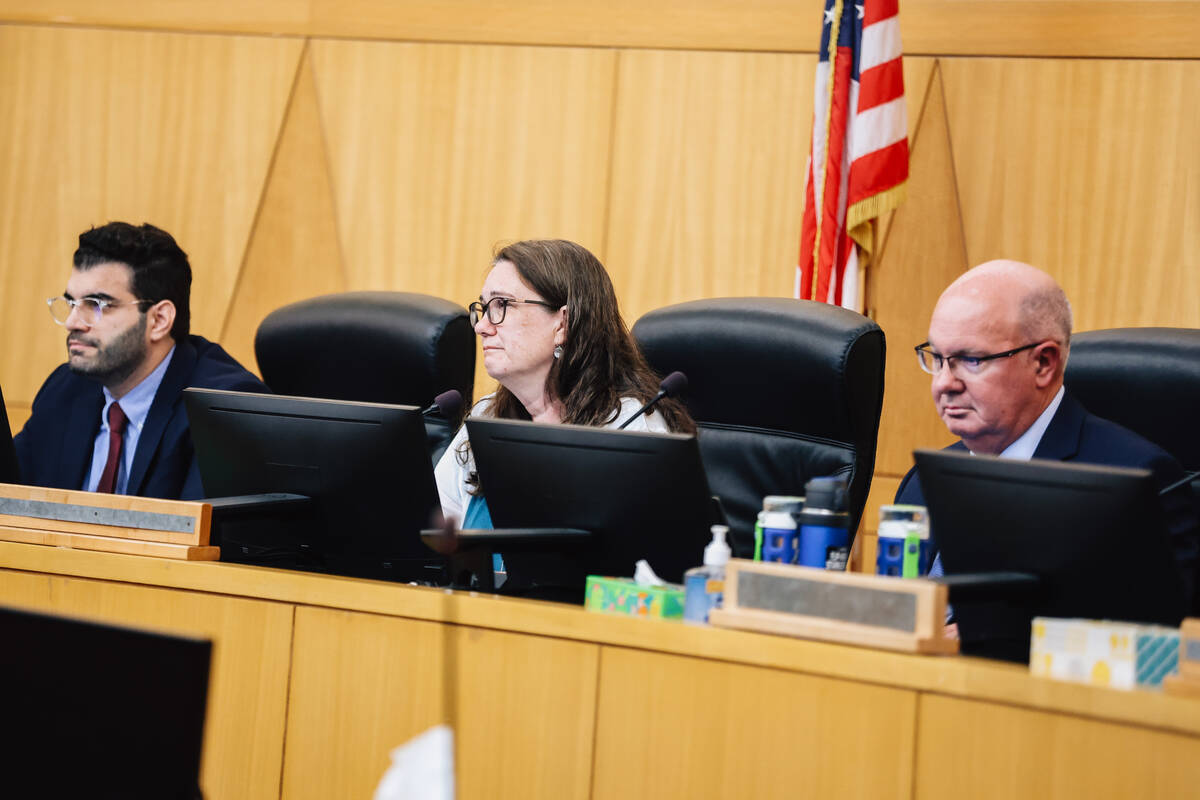Commission denies AG’s office petition to overturn NV Energy demand charge
NV Energy’s new demand charge is staying in place.
The Public Utilities Commission of Nevada has officially denied the Attorney General’s Bureau of Consumer Protection’s petition for the regulatory body to reverse its decision.
On Tuesday, the PUCN stood firm on its decision regarding NV Energy’s new mandatory demand charge, approving a draft order that was released Nov. 14. Commissioners also heard around an hour of public comment in opposition of the demand charge during the regular agenda meeting.
The demand charge is still set to go into effect April 1.
“The Nevada Public Utilities Commission delivered a decision today that reaffirms a commitment to fairness for customers that do not have rooftop solar by implementing a new demand charge for Southern Nevada residential and small commercial customers,” said NV Energy in a statement.
According to NV Energy, there is a large discrepancy in cost recovery when it comes to serving solar net metering customers, resulting in non-rooftop solar customers paying the difference. Between 2018 and 2024, the total cost shift borne by non-rooftop solar customers in Southern Nevada was $424 million, said a spokesperson from the utility.
“The demand charge helps fix an inequity between rooftop solar customers and non-rooftop solar customers by ensuring everyone contributes fairly to the grid we all rely on,” said NV Energy in the statement.
Rooftop solar customers will see a $12 increase in their monthly bills, on average.
If their energy consumption behavior remains the same, non-rooftop solar customers should not see an increase in their bill and will likely go down by a few dollars, according to the PUCN and NV Energy.
The BCP had called on the PUCN to reverse its approval of the demand charge in October, calling it “unlawful.” The bureau’s petition asked the regulatory body to reconsider its decision on two fronts: the demand charge violates a Nevada law prohibiting mandatory time-of-use rates for all customers and “lacks substantial evidence.”
Additionally, the BCP accused the PUCN of “unreasonably” siding with the utility.
In a draft order, the PUCN rebutted the BCP’s claims on all fronts, saying the demand charge does not infringe on Nevada law because it will rely on a “flat, fixed demand rate” of 14 cents per kilowatt. It also disagreed with the claim it lacked evidence, saying it will help recoup the cost it takes to serve net metering customers.
The draft order stated: The demand charge “is not the best tool to solve the under-collection of costs” from net metering customers, but “simply ignoring the issue, and forcing Nevada’s non-solar customers to continue to pay higher rates, is not an acceptable path forward.”
What is the demand charge?
The demand charge, which was approved for Southern Nevada customers on Sept. 16 by the PUCN, would be mandatory for all residential and small business customers.
The approval of the demand charge creates a two-pronged approach to billing customers each month: how many kilowatts a customer used during their highest 15-minute period of usage combined with the typical per kilowatt hours used each month. But, in April, the per kilowatt hour charge will go down to account for the demand charge.
NV Energy has proposed a 14-cent per kilowatt demand charge. Therefore if a customer uses 2 kilowatts during their 15-minute peak, the demand charge for that day will be 28 cents. All daily demand charges will be added up at the end of the month and applied to the customer’s bill.
Solar customers cannot use net metering credits to offset the cost of the demand charge.
Contact Emerson Drewes at edrewes@reviewjournal.com. Follow @EmersonDrewes on X.



















